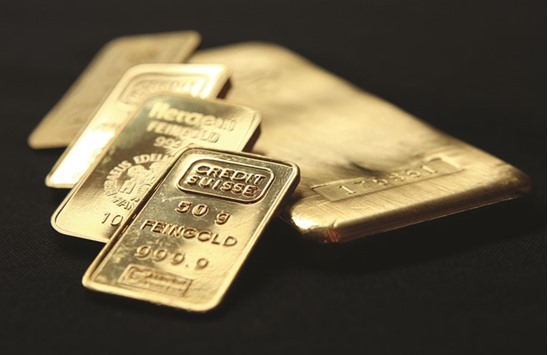On the outlook for new investment opportunities, the rapidly growing Islamic finance industry has set sight on the gold market as initiatives are underway to establish a new standard to make the metal tradable under Shariah finance rules, eliminating disputes among scholars whether gold is to be treated as a currency or as a commodity.
So far, Islamic investors have been reluctant to invest in gold because to do so, they would need the metal in physical form as an underlying asset, which is rarely the case in conventional gold trade. Because of that, broadly traded gold futures do not qualify as a Shariah-compliant investment. Other conventional gold-based financial offerings in the form of derivatives are also widely viewed as unacceptable for Islamic scholars.
On the other hand, investment that involves a forward purchase agreement at an agreed price against future delivery (the principle of salam) would, but there is still physical gold in the play.
London-headquartered World Gold Council (WGC), together with Kuala Lumpur-based Amanie Advisors, an independent advisory firm on Shariah investments and the Accounting and Auditing Organisation for Islamic Financial Institutions in Bahrain, now have been developing a “Shariah Standard on Gold” which aims at “providing guidance from the Shariah perspective on the usage of gold in financial and investment transactions for Islamic financial institutions and participants,” as WGC head Natalie Dempster puts it. The standard also aims to increase transparency and harmonisation of the use of gold investments and reduce unclear specifications on what’s haram and what’s halal in trading the metal.
A respective seminar was held last December in Kuala Lumpur, and a global industry roll-out of the standard is planned later this year with regulations that could also apply to silver and other precious metals. It depends, though, on the full approval of all scholars participating in the WGC-driven Islamic gold standard initiative and the outcome of related hearings in the Middle East and large Islamic finance markets such as Malaysia and Indonesia. What the new Islamic gold standard will exactly define is not entirely clear yet. There are still different opinions among scholars about the classification of gold either as a commodity or a currency, referring to its previous use as gold coins.
Basically, the metal is considered an item not to be bought and sold at a profit, at a different price or on a deferred payment basis which makes trading it a complex task for an Islamic investor. There are also restrictions in using gold as an underlying asset for sukuk or other Islamic finance instruments except under specially defined exemptions or particularly strict conditions. he draft for the gold standard tries to compromise on the conflict over whether gold is a commodity or a currency and says it is both. It proposes using the metal to back Islamic bonds, to be used as capital in partnership contracts and as collateral for loans and for deposits. The standard could thus be applied to products including exchange-traded funds and to collateral and security deposits.
“We found that there is overwhelming demand for gold to play a greater role in Islamic finance,” Dempster says, adding that “our discussions with industry participants signal that it will act as a major catalyst for the development of a broad range of Shariah-compliant gold products such as gold accumulation plans and physically-backed gold funds.”
If the standard goes through, it could definitely shake the gold market as Islamic financial institutions around the world, which hold around $2tn in assets and are expected to double that asset base up to 2020, would certainly unleash large funds to participate in the Shariah-compliant gold trade and represent a tremendously bullish force for the metal’s price with demand coming from investment funds, wealth managers, retail banks, liquidity managers, treasurers and takaful institutions. Furthermore, gold, as an important tool to or manage financial risk and volatility, could also help Islamic finance institutions to offset credit risk and diversify their exposure to commonly used, but limited Shariah-compliant assets such as real estate, Islamic bonds or certain stocks.

Fifty gram gold bars seen across a one kilo gold bar at bullion dealers Goldcore in London (file). The Islamic finance entry into gold market could definitely shake the gold market as Islamic financial institutions around the world, which hold around $2tn in assets and are expected to double that asset base up to 2020, would certainly unleash large funds to participate in the Shariah-compliant gold trade.
